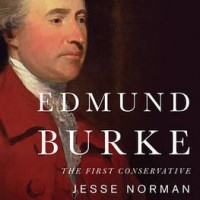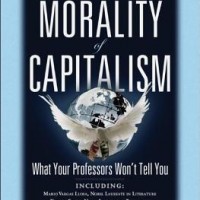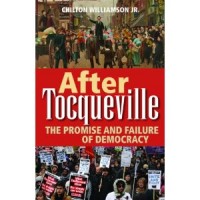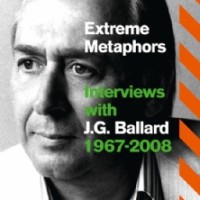Burke, Party, and the Human Person, by J.P. O’Malley
The philosopher and statesman Edmund Burke is often lauded as the founder of modern conservatism. Burke was born in Dublin in 1729 and educated at Trinity College. In 1750 he moved to London, where he stayed for the remainder of his life.
When he arrived in London, Burke had a very brief career in law, but he soon dedicated his life full-time to critical thinking, writing, and politics. Over his long and distinguished career Burke published a number of groundbreaking books, including A Philosophical Enquiry into the Origin of Our Ideas of the Sublime and Beautiful and Reflections on the Revolution in France.
Burke lived during an extraordinary period in British history, where his good friends included Samuel Johnson, Adam Smith, and David Hume.
In his new book, Edmund Burke: The First Conservative, Jesse Norman dissects Burke’s outstanding intellect and his career. He then asks how Burke’s ideas might be applied to modern politics.
Jesse Norman is a Conservative MP for Hereford and South Herefordshire in the UK. He is a senior fellow at the UK think tank Policy Exchange and has taught philosophy at University College London and Birkbeck College.
In the book you discuss how Burke believed the only way to destroy what he insisted was the “King’s network of patronage” was through political parties. Can we see this as the precursor for the modern political party?
Well, the idea of a political party for Burke is contrasted with the idea of a faction, which is a group of people who come together to achieve a goal. They have no further glue that keeps them together after this goal and therefore they tend to disperse. In opposition to that idea is a party, in which a group of people are united around a principle that cannot be exhausted. Therefore they do not disperse after some particular achievement. They maintain themselves.
What is so fascinating about Burke’s conception of a political party is that he then builds into this a wider notion of what you might call a para-constitutional role. This is where political parties serve a number of functions: they act to debate, to create an oppositional government, to train and recruit political talent, and to make political principles more effective and create an open government.
So I think when people denounce political parties now within our current political system, they are often unaware of the alternatives. And the alternatives are a system of factions, which you see in the eighteenth century, before the idea of party politics really took over. If it’s not a politics of faction, then you get a politics of special interests: this is what you see in America presently, where very lightly whipped parties are dominated by a money interest.
You describe Burke as one the earliest postmodern political thinkers. You also refer to him as one of the greatest critics of the modern age and of liberal individualism. Can you briefly talk about this?
Well Burke is not a postmodernist in the sense that he does believe that there is truth and falsehood. He doesn’t believe that everything is a matter of narrative or power relations. But he is a postmodern: that is to say his thought contains within it a critique of modernity. And that critique begins with an understanding of human nature. Because where modernity goes wrong—from a Burkean perspective—is in the application of human nature to our reasoning of human affairs.
That is something that you find within liberal individualism: this idea of treating a human being as a mere economic agent. This gives rise to cultural feedback that then bends the nature of humans, because they react to how they are understood. So you have this perception that people are simply motivated by greed and fear. That greed-and-fear psychology then gets embedded in a culture.
But what Burke says is that humans are not mere economic agents; what really matters is how they link with each other. We cannot see people only in terms of incentives, but in terms of habits and affections as well.
When you do that, you get a rich conception of the social order. It’s an idea where people are not just driven by greed.
You get a much better idea and understanding of how people actually behave. You also avoid these effects where people are encouraged to be greedy, and therefore they become greedy as a result.
Read the complete interview in The University Bookman
Capitalism vs. the Free Market, by Ivan Pongracic.
Greedy bankers, overpaid executives, anaemic growth, the stubbornly high unemployment—these are just a few of the things that have lately driven protesters on to the streets and caused the wider public in the developed world to become disgruntled about capitalism. The system, in all its different varieties, is widely perceived to be failing to deliver.”
This is how, in January of 2012, the Financial Times started its series “Capitalism in Crisis” (italics are mine). Even worse, the introductory article then continued, the above mentioned villains simply bought the politicians and “bought themselves protection from proper societal accountability.” So for the next four weeks, economists, politicians, editorial writers, and just about anybody else, attacked or defended something called “capitalism,” trying to offer explanations for what we have experienced in the last several years.
Two books reviewed here are, in a way, the continuation of this same battle. The Morality of Capitalism: What Your Professors Won’t Tell You is a short book edited by Tom G. Palmer, of the Cato Institute but also of Atlas Network and Students for Liberty. It consists of his Introduction and fourteen essays by fourteen different writers, all of them categorically defending capitalism as the best and most moral system of all economic systems tried so far. The book, unapologetically, offers the reader the Truth: “Capitalism is a system of cultural, spiritual, and ethical values. . . . Indeed, capitalism rests on a rejection of the ethics of loot and grab . . . [It is in other economic systems where] predatory elites use [a] force to gain monopolies and to confiscate the produce of others through taxes.”
As a professor, I must admit, I have no problem with defending a system so defined, but the question I pose is, has capitalism really proved itself so pure in the real life? We’ll come back to this in a moment.
Defending the Free Market: The Moral Case for a Free Economy, by Father Robert Sirico, president of the Acton Institute, has the same goal but a different approach. Through a personal story, Father Sirico tells us how he came to discover the Truth—actually two truths: economic and spiritual. Realizing that our country has a huge problem, he warns that “when a people surrenders their [sic] freedom to government—the freedom to make moral, economic, religious, and social choices and then take personal responsibility for the consequences—virtue tends to waste away and faith itself grows cold.” Only responsible people can save America. “Philanthropy, charity, voluntarism, activism, and care for the family and the poor are all related to the same impulses that drive the market economy: the peaceful and free association of people in the service of others.” Again, no problem in defending such a system, but is such a system possible at all?
Let’s turn, first, to some definitions, as one must be careful in word choice when economic systems are discussed. Palmer does insist, as the title of the book implies, on using the word capitalism. In the section “The History of a Word,” he tells us that the word was not invented by Karl Marx, as usually believed; it was already used in the twelfth and thirteenth centuries. Only with the birth of socialism did the word become a term of abuse. Despite his explanation, I, myself, see no reason for insisting on the word. Even several of the contributors in his book use terms like “the free market” and “the market economy,” trying to avoid a word so ambiguous and by now so ill-reputed. The above quoted article from the Financial Times insists on many variants of capitalism. Father Sirico himself calls it “admittedly a narrow and problematic word.” Palmer simply decided to shrug off such linguistic pedantry.
Unfortunately for Palmer, the term “capitalism” must be heavily qualified to have any meaning. The word has become so horribly unclear that it may have about as many interpretations as interpreters. It may describe financial capitalism, where mathematical geniuses are allowed to turn almost any piece of paper into wealth by using esoteric equations and giving them fancy names, like “synthetic CDO squared” instruments; the word may describe state capitalism, as in fascism and National Socialism, where governments decide what, when, and how to produce the things they deem important; it may describe free-market or entrepreneurial capitalism, as those who like the word usually call it; it may describe cowboy capitalism, as those on the left prefer to call it; or, finally, the word may describe crony capitalism, as Palmer himself does a couple of pages later. (Sirico tries to escape the traps of crony capitalism by naming that concept as cronyism, but the main problem persists: would the real capitalism please stand up?)
The fact is, for those less informed than Palmer (including perhaps those professors from the subtitle?), it is too easy to put all capitalisms in the same category and conclude that capitalism tends to devolve into an immoral system. Even Palmer sets himself up when he discusses crony capitalism. First, he tells us how Marx himself praised capitalism for improving productivity, for creating “a world literature,” for overcoming the hatred of foreigners, among other advantages. But then he quotes Marx as saying that the whole system is based on public credit. It is the state that helps the capitalists become richer, that protects them, and “[a]ll political upheavals perfected this machine instead of smashing it. The parties that strove in turn for mastery regarded possession of this immense state edifice as the main booty for the victory.”
Two pages later, in a section titled “Free-Market Capitalism vs. Crony Capitalism,” Palmer complains that we should never confuse the two. Sadly, he says, “crony capitalism is the term that can with increasing accuracy be applied to the economy of the United States, a country in which failed firms are routinely ‘bailed out’ with money from taxpayers, in which the national capital is little more than a gigantic pulsating hive of ‘rent-seeking’ lobbyists, bureaucrats, politicians, consultants, and hacks, and in which appointed officials of the Treasury Department and the central bank [the Federal Reserve System] take it on themselves to reward some firms and harm others.”
Isn’t that exactly what Marx just said? Is Palmer proving Marx right? Does capitalism inevitably end up in crony capitalism? And if so, how can Palmer declare capitalism not only moral, but the most moral of all economic systems?
Read the complete article in The University Bookman
The Persistence of History, by P. Bracy Bersnak
Twenty years ago, as the Cold War ended with the triumph of the West over Communism, Francis Fukuyama proclaimed the “end of history,” by which he meant that human political community had reached its final and best stage of development in the form of liberal democracy. Samuel Huntington spoke of a third great wave of democracy sweeping through eastern Europe, Latin America, and Asia. But many of the new democracies were short lived, pulled down in an authoritarian undertow. History had a future after all.
Whether or not they agree with the specifics of Fukuyama’s claims, political scientists, policy analysts, and policy makers share his fundamental assumptions. They disagree chiefly over the means by which liberal democracy should be spread throughout the world. Though the experiences of the last decade have chastened advocates of promoting democracy around the world, support for liberal democracy remains the default position for U.S. foreign policy. Even when support for democracy undermines allies and facilitates the rise to power of anti-Western parties—that is, even when it seems to work contrary to the national interest—American administrations tend to stay faithful to promoting democracy.
That may be why Chilton Williamson, Jr. inclines toward defining democracy as a kind of religion. Williamson is a former literary editor of National Review, currently senior editor of Chronicles, and the author of several novels. He says that there is no generally accepted definition of democracy, and does not try to formulate one of his own, but seems to settle on characterizing it as a false religion that believes that the popular will should always prevail in government (pp. 73–74). If Williamson is right, his definition would go some way toward explaining why so many are blind to the weaknesses of contemporary democracy and the possibility of its demise: the inevitability and permanence of democracy is an article of faith.
The first part of Williamson’s book traces the history of modern democracy from American independence up to the present, focusing on the U.S. and Britain. He believes that democracies have best flourished in periods during which they were imperfectly democratic. Both American and British democracy experienced their golden ages when the franchise was broad but not universal, and when educated men of property played the leading roles in political life. By the late nineteenth century, this “aristocratic balance” was lost. During World War I governments mobilized their entire populations to fight and extended democracy more broadly than ever before. The war discredited European liberalism, which was blamed for the war and the weaknesses of multiethnic regimes that emerged from it. But the war did not discredit the democratic principle, which was pressed into the service of nationalism and socialism. It was only after World War II and the defeat of totalitarian National Socialism that liberal democracy was wholeheartedly embraced by peoples and governments. Until then, intellectuals were for the most part opposed to democracy. Men of letters as various as Stendahl, Matthew Arnold, Albert Camus, and T. S. Eliot expressed deep skepticism toward democracy. As Wyndham Lewis said, “No artist can ever love democracy.”
Williamson admires what Alfred Kahan called the aristocratic liberalism of Alexis de Tocqueville and others because they believed in popular government but were aware of its potential to threaten individual liberty, intellectual excellence, and the social bodies that make up civil society. While progressives of various stripes have sought to extend the principles of democracy from the political realm into civil society, conservatives have opposed this extension, believing with Tocqueville that nondemocratic social bodies in civil society counteracted dangerous tendencies in democratic politics. Williamson says that “it was in his fears, perhaps even more than in his hopes, that the author of Democracy in America proved himself to be a man of deep intuition and a true prophet of history” (p. 40). But Tocqueville is more a point of departure than an interlocutor for Williamson because democracy has changed so much from his day to ours.
Read the complete article in The University Bookman
Testing the Metaphor, by JP O’Malley
In the program Frost on Interviews, recently rebroadcast on British television, the distinguished journalist David Frost attempts to understand what makes a compelling interview. In particular, the program focuses on the actions of the interviewer: should one take a relaxed or heavy-handed approach with their guest?
This approach would not have fit too comfortably in an interview with the late J. G. Ballard, whose Extreme Metaphors is light-years away from the Frost approach.
For J. G. Ballard—arguably one of the most important prose fiction writers to contribute to British culture in the post-war period—an interview wasn’t just an opportunity to flog his latest novel, talk about his characters, or name check his literary heroes.
Any time Ballard indulged a journalist—usually at his home in Shepperton—for an intimate chat, the occasion became almost an experiment where the writer tests his hypothesis with his interlocutor.
We see a remarkable example of this in a conversation from 1974, when journalist Carol Orr asks Ballard for a prediction about the future of Western culture. He responds by speaking about a society where people “want to be alone and watch television.”
Orr, horrified at what she clearly perceived to be an immoral and apocalyptic outcome, says she wants to be neither in a traffic jam, or “alone on a dune, either.” To which Ballard replies, “Being alone on a dune is probably a better description of how you actually lead your life than you realize.”
The interview ends shortly afterwards, but it’s exemplary of Ballard taking the format and twisting it to his advantage in the same way a writer does with an essay: meandering around different ideas, following the intellect at all times, but never attempting to arrive with a definitive polemic, or thesis, at the final destination.
For Ballard, the interview is a fitting moment to take images from his artistic landscape and see how they fit into the society of which we are all supposedly a part: the nightmare marriage between sex and technology in Crash, the empty swimming pools and vast deserted cities in Cocaine Nights, or the preoccupation with class consciousness in High Rise. All become topics open for discussion.
The book includes over forty-four different interviews spanning a period of forty-one years, and many of the quotes it contains read like aphorisms: “Most of us lead comparatively isolated lives”; “There is a darker corner of the human psyche that intrigues us”; “The automobile represents an extension of one’s own personality.”
Read the complete article in The University Bookman
Ten Conservative Books Revisited, by Gerald J. Russello
In 1986, Russell Kirk gave a lecture titled “Ten Conservative Books” in which he identified ten important books that distilled or expressed conservative principles, from Burke’s Reflections on the Revolution in France to T. S. Eliot’s Notes Towards the Definition of Culture, the book Kirk pressed upon the hapless Richard Nixon. The essay is worth reading not only for the book suggestions but also for what Kirk has to say about the role of books in the culture; as a bookish person himself, Kirk valued tomes highly, and having been in his library—a converted factory near his ancestral Piety Hill home—there is no question that Kirk was a bibliophile.
Yet Kirk recognized that “It is possible for books to comment upon custom, convention, and continuity; but not for books to create those social and cultural essences. Society brings forth books; books do not bring forth society.” Cultural renewal must occur at the level of the person, family, and community; books can help that process, but wise books come from societies that value and reflect upon wisdom; rarely the other way round.
With that in mind, there is some merit in supplementing Kirk’s list a quarter century on, so herewith my choices for ten conservative books.
1. Joseph Roth, The Radetzky March. In his list, Kirk abjured fiction, although in passing he recommended some authors such as Robert Louis Stevenson and Nathaniel Hawthorne. The Radetzky March covers the period leading up to the dissolution of the old European Order before, and as a result of, World War I. Like Giuseppe Lampedusa’s The Leopard, Roth is clear-eyed about the Austro-Hungarian Empire and its many flaws, but equally clear-eyed about what he calls the “bestial” promise of an order that had ripped aside its traditions.
2. Patrick Leigh-Fermor, A Time for Gifts. Leigh-Fermor, who died recently, was in some sense the highest product of the tradition whose destruction Roth lamented. A polymath, courageous soldier (he led a British commando unit in occupied Crete during World War II), and elegant writer, Leigh-Fermor as a young man walked through Europe to Constantinople, just as Nazism was rising on the Continent. This book, the first volume of two covering the journey, describes a pre-Internet, pre-EU Europe of deeply local customs and perspectives, a collage of nations that is almost impossible for us to imagine; almost, because Leigh-Fermor’s prose makes such imagination possible.
3. Christopher Dawson, Religion and the Rise of Western Culture. The Europe Roth and Leigh-Fermor describe was a disparate set of people bound together by a common faith. How that faith—which itself came from outside Europe, bearing with it the markings of Israel and the Near East—came to shape Europe is described in this book, written by one of the twentieth century’s greatest Christian historians.
4. John Lukacs, Last Rites. After Dawson Lukacs is perhaps the historian every conservative should read. Lukacs—a Hungarian refugee to the United States—has written a series of books articulating a defense of European and specifically Anglo-American civilization. He is no mindless defender of right-wing orthodoxy—far from it. But his perspective on patriotism and the moral nature of history, among many other subjects, makes this book—a follow up to his amazing first volume of memoirs, Confessions of an Original Sinner—a perfect introduction to his other works, including the indispensable Historical Consciousness, which explodes every progressive myth about historical thinking you can imagine.
5. Russell Kirk, The Conservative Mind. Although Kirk did not include his own works in his listing, now, some five decades on, his masterpiece, The Conservative Mind, needs to be read by anyone seeking to understand the conservative tradition. As David Frum once wrote, Kirk as much created as discovered the conservative intellectual tradition, which he traced from Edmund Burke to Eliot. And it is that tension between preservation and innovation that lay at the heart of Kirk’s project, a tension that Kirk navigated through reverence for the past but also the consistent application of imagination to the problems of the present
Read the complete article in The University Bookman



